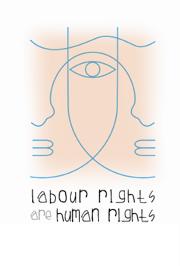This is an archive of news stories and research from the National Union of Public and General Employees. Please see our new site - https://nupge.ca - for the most current information.
“We now have four years of consistent jurisprudence that recognizes the constituional obligation of governments to respect the collective bargaining process and refrain from enacting legislation that strips away the Charter rights of their employees.” James Clancy
 (14 April 2011) – In a landmark decision handed down yesterday, the BC Supreme Court ruled that laws which take away collective bargaining rights from teachers unconstitutional and in breach of the Canadian Charter of Rights and Freedoms.
(14 April 2011) – In a landmark decision handed down yesterday, the BC Supreme Court ruled that laws which take away collective bargaining rights from teachers unconstitutional and in breach of the Canadian Charter of Rights and Freedoms.
Bill 27, the Public Education Flexibility and Choice Act, prohibited the inclusion of certain items in teacher collective agreements, including staffing, class size and composition limits.
Bill 28, the Education Services Collective Agreement Act, amalgamated school districts and local bargaining units, imposing one collective agreement on teachers in the newly amalgamated districts who had previously been covered by two or three local agreements.
Madam Justice Griffin declared that Bills 27 and 28 were a substantial interference in bargaining rights and infringed on freedom of association guaranteed under the Charter of Rights and Freedoms.
“While not a perfect tool, collective bargaining has long been seen as the best vehicle for resolving differences between management and labour,” stated Justice Griffin.
“Giving workers a voice in the process of determining their working conditions, even where they are not substantially successful in advancing their position, is regarded as a means of increasing stability in the workplace,” said Justice Griffin.
In 2002, the National Union of Public and General Employees (NUPGE) submitted a complaint to the International Labour Organization (ILO) against Bills 27 and 28. The NUPGE complaint also included Bill 29, legislation that overrode collective agreements of health care workers. Bill 29 was declared unconstitutional by the Supreme Court of Canada (SCC) in an historic June 2007 decision (B.C. Health Services) that affirmed collective bargaining as a constitutional right of all Canadians.
In the B.C. ruling released yesterday, Madam Griffin quoted the decision of the ILO regarding NUPGE’s complaint:
“ …. while the determination of broad lines of educational policy is not a matter for collective bargaining between the competent authorities and teachers' organizations, it may be normal to consult these organizations on such matters (see Digest, op. cit., para. 813). This is particularly important in cases such as the present one, where the issues in question were previously negotiated, with the usual give and take process, which means that the parties probably gave away some demands in return for concessions, which are now being taken away through legislative decision. Such a unilateral action by the authorities cannot but introduce uncertainty in labour relations which, in the long term, can only be prejudicial.”
“This decision is a logical extension of the June 2007 Supreme Court of Canada B.C. Health Services decision making collective bargaining a constitutional right of all workers," says James Clancy, national president of NUPGE. “We now have four years of consistent jurisprudence that recognizes the constitutional obligation of governments to respect the collective bargaining process and refrain from enacting legislation that strips away the Charter rights of their employees.”
Marjorie Brown is a member of the Board of Directors of the Canadian Foundation for Labour Rights and a partner with Victory Square Law Office, the law firm that challenged the legislation on behalf of the B.C. Teachers Federation.
“This case is an important development in the law following B. C. Health Services,” said Brown. “The Court has once more recognized that government does not have the right to impose legislation which overrides freely negotiated collective agreement provisions and which prohibits bargaining certain collective agreement terms, without consultation.”
Both pieces of legislation were introduced ten years ago when Christy Clark (who is now the Premier of B. C.) was the Education Minister. Commenting on the decision yesterday, Clark said, “It’s obvious that we didn’t get it right back then and going forward we want to ensure that we deal with the teachers’ union in the right way and in the way the Court has directed us to.”
NUPGE
The National Union of Public and General Employees (NUPGE) is one of Canada's largest labour organizations with over 340,000 members. Our mission is to improve the lives of working families and to build a stronger Canada by ensuring our common wealth is used for the common good. NUPGE
More information:
